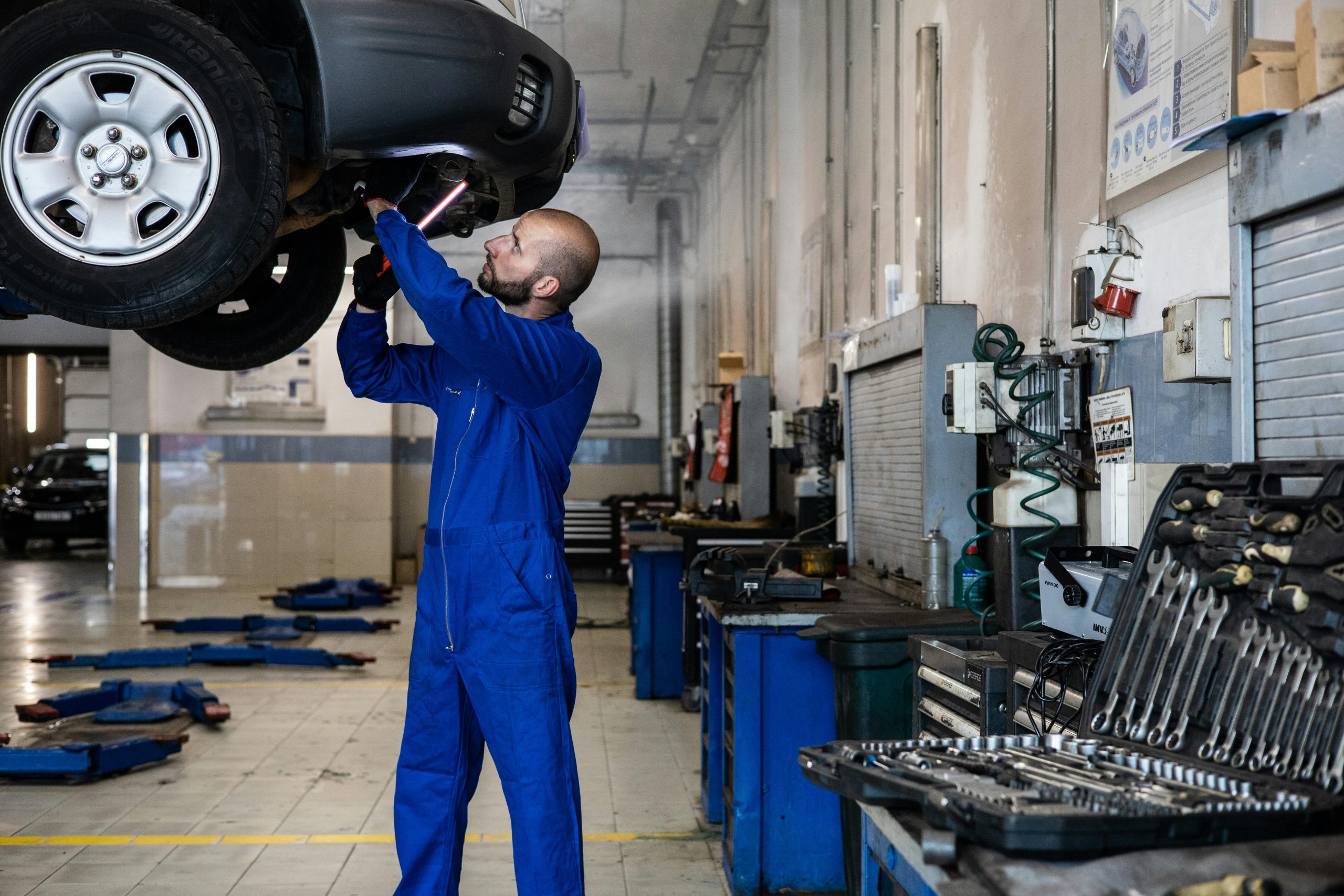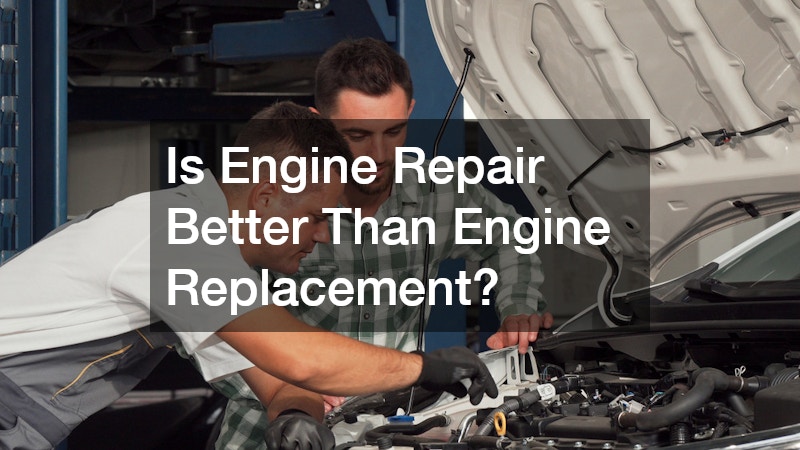Highlights
- A customer-focused mechanic ensures clear communication, trust, and peace of mind.
- Amenities like waiting lounges, Wi-Fi, and refreshments enhance the service experience.
- Checking reputation, certifications, and professionalism is essential before selecting a mechanic.
- Warranties and post-service support reflect a shop’s commitment to customer satisfaction.
- First impressions, accessibility, and convenience influence the overall experience.
- Fair pricing combined with transparency ensures the best value for service.
- Avoiding red flags helps prevent poor service and unexpected costs.

Finding a mechanic who can repair your car is one thing—but finding one who truly values your experience as a customer is another. Vehicle repairs and maintenance can be stressful, especially if you’re unsure whether the work will be done properly or if you’ll be treated fairly. Choosing a mechanic who prioritizes customer experience can transform routine service into a pleasant, stress-free part of car ownership.
A customer-focused mechanic not only delivers high-quality repairs but also communicates clearly, provides transparency in pricing, and creates an environment that makes your visit comfortable. This article provides in-depth guidance on how to choose a mechanic who puts the customer first, covering reputation, communication, amenities, certifications, support, and warning signs to watch for.
Why Customer Experience Matters in Auto Repairs
While technical expertise is critical, a mechanic’s attitude and approach to service are equally important. Customer experience affects safety, trust, and satisfaction in several ways:
Benefits of Choosing a Customer-Focused Mechanic
- Improved Communication: Understanding what repairs are needed and why ensures you make informed decisions.
- Stress Reduction: Friendly, patient staff reduce anxiety about car problems.
- Trust Building: Transparent and ethical practices create long-term loyalty.
- Enhanced Safety: Mechanics who educate customers about vehicle conditions improve road safety.
An example: A mechanic who explains the difference between a minor oil leak and a potential transmission issue helps customers make smart decisions, avoiding unnecessary panic and costly repairs. On the other hand, shops that rush explanations or hide information can cause confusion and frustration.
Research and Reputation Check
A good place to start is researching the mechanic’s reputation. This step can save you from choosing a shop that prioritizes speed or profit over quality and customer care.
How to Evaluate a Mechanic’s Reputation
- Online Reviews: Check Google, Yelp, and Angi for patterns in feedback. Look for repeated praise or complaints.
- Word of Mouth: Ask friends, family, and coworkers for personal recommendations.
- Social Media Presence: Active engagement and responsiveness can indicate professionalism and attentiveness.
- Longevity and Local Reputation: A shop with years of service often has a track record of reliability and customer satisfaction.
Tip: Look beyond the star rating; read specific comments about communication, honesty, and amenities.
Communication Skills and Transparency
Effective communication is key to a positive customer experience. Mechanics who prioritize customer experience take the time to explain repairs clearly and honestly.
What to Look For
- Clear Explanations: Mechanics should translate technical issues into understandable language.
- Demonstrations: Showing you damaged parts or explaining the repair process builds confidence.
- Prompt Responses: Quick replies to calls, emails, or texts indicate respect for your time.
- Transparent Pricing: Estimates should be clear, with no hidden fees.
A mechanic who is honest about what work is necessary versus optional fosters trust and minimizes misunderstandings.
Amenities That Enhance Customer Experience
Beyond technical skills, amenities play a big role in overall satisfaction. Waiting at a shop can be uncomfortable, especially during longer repairs.
Valuable Amenities
- Comfortable waiting areas with seating, Wi-Fi, and a coffee bar
- Entertainment options such as TVs or reading materials
- Clean, organized facilities that reflect professionalism
- Family-friendly spaces, including play areas for children
These amenities show that the shop cares about your comfort and well-being, not just the car. Some drivers actively seek a car repair shop known for its customer lounge with Wi-Fi and coffee bar because it makes routine maintenance feel more like a pleasant visit than a chore.
Certification and Professionalism

While customer experience is vital, it must be backed by professionalism and technical competence.
What to Check
- Certifications: ASE (Automotive Service Excellence) or manufacturer-specific certifications indicate proper training.
- Professionalism: Staff should be courteous, punctual, and organized.
- Ongoing Training: Shops that invest in regular training stay updated on new car technologies.
Professionalism extends beyond skills; it includes honesty, punctuality, and respect for the customer’s time. A mechanic who balances technical expertise with excellent customer service is invaluable.
Warranty and Post-Service Support
A customer-focused mechanic provides more than just repairs—they ensure long-term satisfaction.
Key Areas
- Warranties: Coverage for parts and labor demonstrates confidence in their work.
- Follow-Up Support: Shops may call to check on the car after service or resolve issues promptly.
- Ease of Contact: Accessible channels for questions after service show dedication to the customer.
A shop that supports you post-service reduces anxiety and reinforces trust, turning a one-time visit into a long-term relationship.
Convenience and Accessibility
Even the best mechanic is less valuable if the shop is inconvenient to reach or schedule.
Factors to Consider
- Location relative to home or work
- Business hours that accommodate your schedule
- Online appointment scheduling
- Loaner cars or shuttle services for longer repairs
Accessibility and convenience make it easy to maintain regular vehicle care without disrupting daily routines.
Pricing and Value
Fair pricing and transparency are critical for a positive experience.
Tips for Evaluating Pricing
- Compare estimates between multiple shops without sacrificing quality
- Avoid mechanics who push unnecessary services just to increase the bill
- Look for shops that provide detailed, itemized invoices
- Value is more than cost—it includes service quality, transparency, and peace of mind
Shops that combine fair pricing with excellent customer care provide the best overall value.
Evaluating First Impressions
First impressions are often revealing indicators of customer focus.
Things to Observe
- Clean, organized, and professional-looking facility
- Friendly and helpful staff at the front desk
- Willingness to answer questions patiently
- Clear signage and easy navigation within the shop
Trusting your instincts during the first visit can help identify shops that genuinely prioritize customer experience.
Red Flags to Avoid
Not all shops that appear professional or well-maintained truly prioritize customer experience. Being aware of warning signs can save you from frustration, unnecessary costs, and even unsafe repairs. Paying attention to these red flags ensures your vehicle is handled by a shop that values honesty, transparency, and safety.
Common Red Flags
- Hidden fees or vague estimates: Some shops provide unclear or incomplete estimates that make it difficult to know what you’re actually paying for. Hidden charges added at the end of service are a major red flag that the shop prioritizes profit over customer trust.
- Poor or inconsistent online reviews: Negative reviews or inconsistent feedback on sites like Google, Yelp, or Angi can indicate recurring problems with service quality or customer treatment. Be cautious if multiple reviews mention similar complaints, even if the star rating seems acceptable.
- Rushed service or dismissive staff: Mechanics who rush through explanations or seem uninterested in your questions may not provide thorough repairs. Respectful and patient communication is essential for understanding the work being done on your vehicle.
- Dirty or unsafe facilities: A cluttered, dirty, or poorly maintained shop can signal neglect in other areas, including vehicle care. Safety hazards or lack of organization may compromise both your experience and the quality of service.
- Resistance to explain repairs or provide proof: Shops unwilling to show damaged parts, explain repairs in detail, or provide documentation may be hiding subpar work. Transparency is key for trust and confidence in your mechanic.
Avoiding shops that display these warning signs helps ensure your car is in capable, trustworthy hands, and that your experience will be professional, transparent, and customer-focused.
Conclusion
Choosing a mechanic that prioritizes customer experience is as important as selecting one with technical expertise. From reputation and communication to amenities, certifications, and post-service support, every factor contributes to peace of mind, safety, and satisfaction.
By researching, asking questions, and paying attention to red flags, drivers can identify shops that offer more than repairs—they offer trust, comfort, and a positive overall experience. Investing time in selecting the right mechanic ensures your vehicle is maintained reliably while making every visit stress-free and even enjoyable.
Ultimately, a great mechanic becomes more than a service provider—they become a trusted partner in keeping your car running smoothly for years to come.






